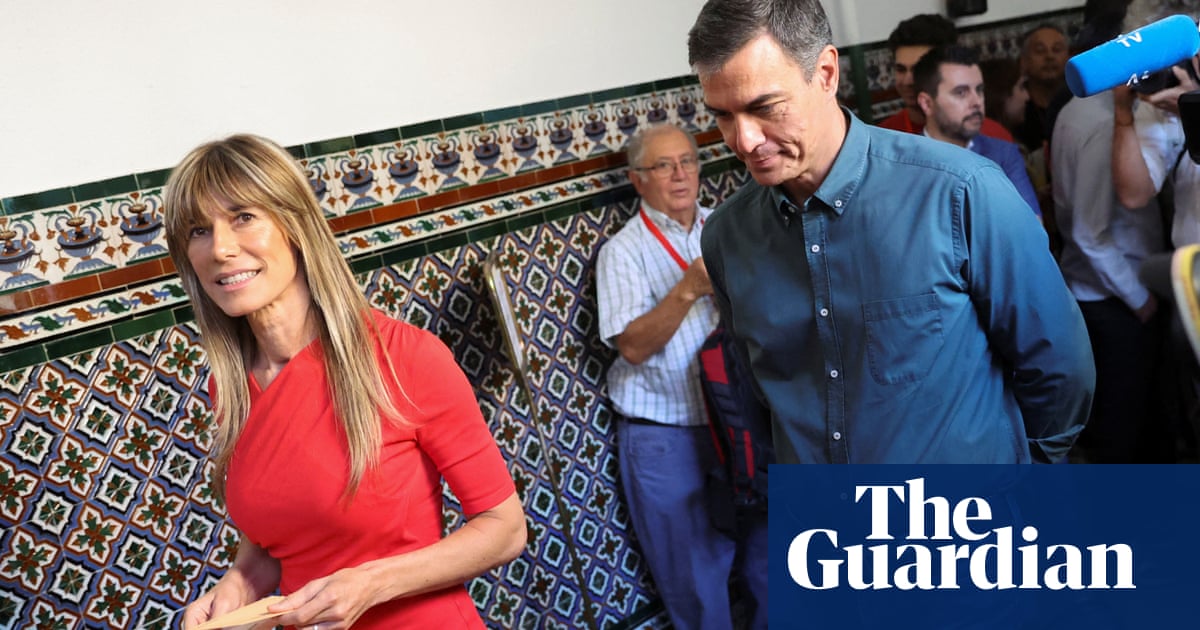
On Wednesday night, Spain’s socialist prime minister, Pedro Sánchez, abruptly announced he was cancelling his public duties for the rest of the week and considering resigning from office. He said he would announce his decision on Monday.
What prompted the shock announcement?
Although Spanish politics has become increasingly polarised, personal and bitter over recent years, Sánchez said he had felt compelled to consider his position after what he called a baseless “harassment and bullying operation” conducted against him and his wife by political opponents and hostile sections of the rightwing and far-right media.
The announcement came hours after a Madrid court said it had opened an investigation into Sánchez’s wife, Begoña Gómez, “for the alleged offence of influence peddling and corruption”. The investigation followed a complaint from the pressure group Manos Limpias (Clean Hands).
Who are Manos Limpias?
The group – which describes itself as an independent national trade union committed to “bringing about the independence of the judiciary and the true and real democratisation of our institutions” – is headed by a lawyer called Miguel Bernad, who is known to have had links in the past to Spain’s far right. In 2021, Bernad was sentenced to four years in prison over a scheme to extort major firms, but was acquitted by the supreme court last month because of a lack of evidence.
Manos Limpias has a long history of using the courts to pursue those it deems to be acting contrary to what it considers to be Spain’s democratic interests. Under Spanish law, individuals and groups can use a mechanism known as the acusación popular (people’s accusation) to put criminal complaints before a judge, who then examines them and decides whether or not to proceed.
What are the allegations on which the complaint is based?
Manos Limpias has accused Gómez of using her influence as the wife of the prime minister to secure sponsors for a university master’s degree course she ran.
The court has not provided any details yet, but its statement came shortly after the online news site El Confidencial said investigators were examining Gómez’s links to several private companies that received government funding or won public contracts.
The site said the investigation was linked to Gómez’s alleged ties with the Spanish tourism group Globalia, which owns the Air Europa airline.
It said she had twice met Javier Hidalgo, Globalia’s chief executive, when the carrier was in talks with the government to secure a huge bailout after it was badly hit by the loss of air traffic due to the Covid-19 crisis.
At the time, Gómez was running IE Africa Center, a foundation linked to Madrid’s Instituto de Empresa (IE) business school, a position she left in 2022.
How have those allegedly involved responded?
IE said in a statement that it had never received any financial support from Globalia or its associate companies.
after newsletter promotion
In March, Spain’s conflict of interests watchdog threw out a complaint made by the opposition conservative People’s party (PP), which claimed there was a link between a government bailout of Air Europa and the “economic and professional ties” of Sánchez’s wife.
In a joint statement at the time, Globalia and Air Europa said the aid received from the Spanish government was “in line with the parameters of other aid received by different companies in the sector in Spain and the rest of Europe” and it considered itself a victim of “political crossfire”.
What has Sánchez said?
The prime minister has accused the PP and the far-right Vox party of colluding with Manos Limpias and rightwing and far-right media outlets to wage a baseless “harassment and bullying operation by land, air and sea” in an effort to bring about his “personal and political collapse by attacking [his] wife”.
In his statement on Wednesday night, he added: “As is only logical, Begoña will defend her honour and will cooperate with the justice system as much as is necessary to clear up facts that are as scandalous in appearance as they are nonexistent.”
Speaking in parliament earlier the same day, the prime minister also said he still believed in the Spanish justice system “despite everything”.
What will happen next?
That will depend on what Sánchez decides over the next few days. His allies are calling on him to remain in office. If he chooses to do so, he could submit himself to a confidence vote to shore up his leadership. If he chooses to resign, parliament could vote for a new prime minister, otherwise a snap election could be called and held in July.
Reuters and Agence France-Presse contributed to this report